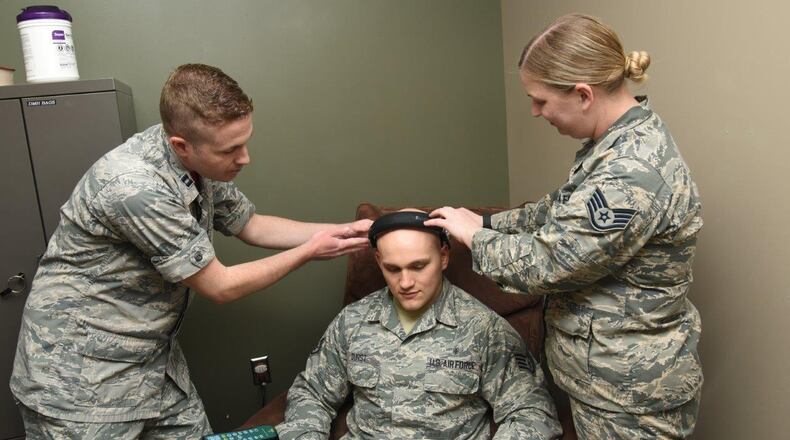To start the day, Gibson attends a team huddle with other healthcare providers and technicians. They discuss which patients and appointments are scheduled for the day, organize how mental health technicians are going to provide support, and discuss any new and relevant information.
“Before seeing any patient, it is important to orient ourselves for the day,” said Gibson. “The mental health technician and I work together as a team, identifying what kinds of information are important to gather from the patient, how to approach goals and treatment plans, and review notes from the previous session. We work to make sure the appointment is both productive and pleasant for the patient.”
Gibson also takes a collaborative approach during each appointment. He gets to know the needs of the patient and assesses the level of symptoms. To aid in this, every patient logs onto the behavioral health data portal in the waiting room. There, patients check in and track their symptoms across a wide range of concerns.
“We look at their scores from the previous session and we can see what their levels are in real time as they are putting it in,” said Gibson. “It lets us know what symptoms are elevated and what issues need to be addressed. We review the data with the patient and see the changes in symptoms. The patient can see a purpose in putting in that information.
“For example, if somebody is coming in with depression and their symptoms are improving in some areas, but not in others, it helps guide the focus and direction of that session,” he said.
Sometimes patient cases can be challenging, but Gibson relies on the varied expertise and specialties of other providers in the clinic who can offer additional guidance to ensure effective treatment.
“Another clinical psychologist may know more about one particular clinical presentation than another,” said Gibson. “There is always collaboration with another provider who may be more familiar with those symptoms. We try not to be in a vacuum, but to work together to address the needs of the patient. We work from a patient-first perspective.”
About the Author
